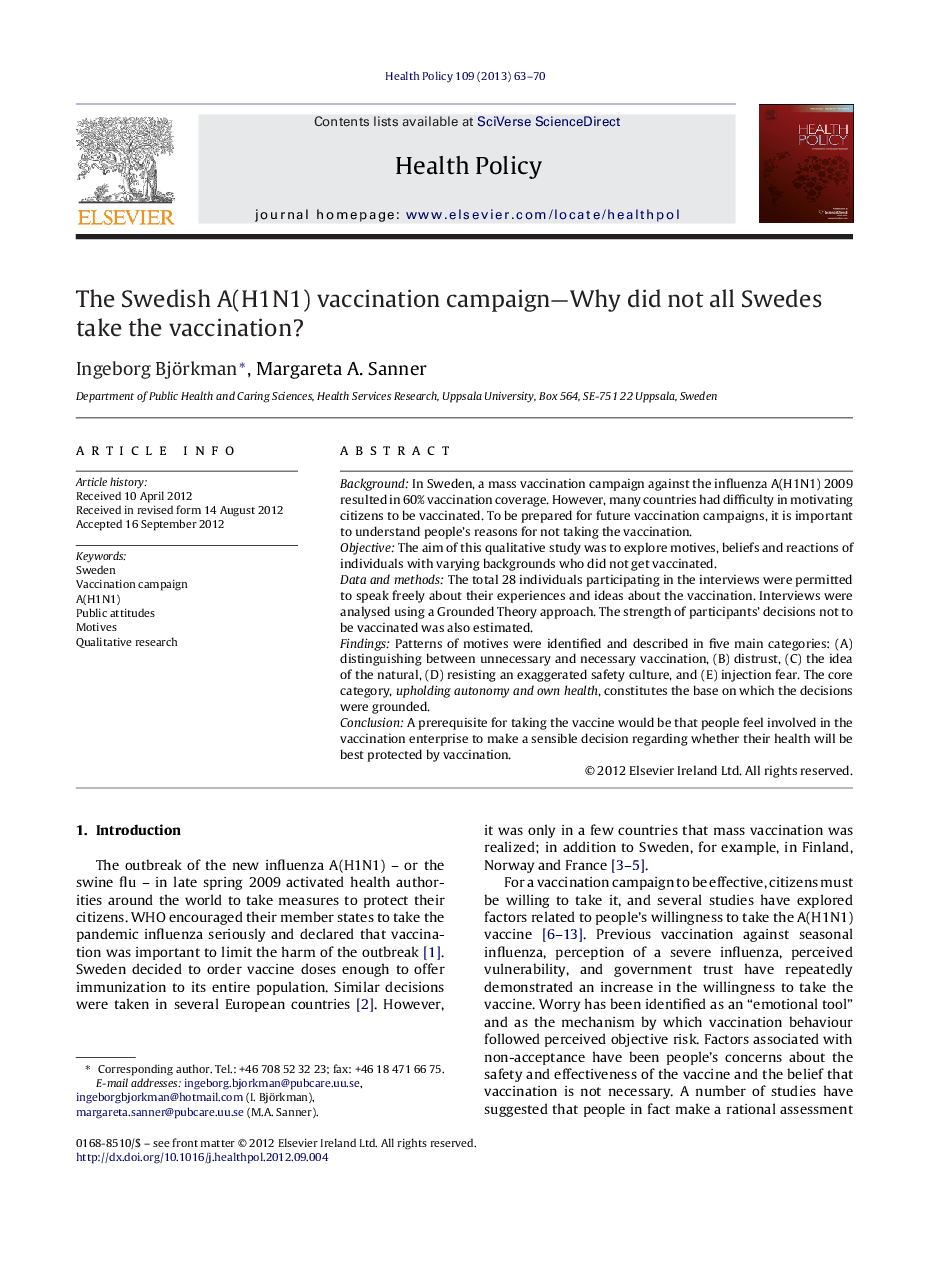| Article ID | Journal | Published Year | Pages | File Type |
|---|---|---|---|---|
| 4197846 | Health Policy | 2013 | 8 Pages |
BackgroundIn Sweden, a mass vaccination campaign against the influenza A(H1N1) 2009 resulted in 60% vaccination coverage. However, many countries had difficulty in motivating citizens to be vaccinated. To be prepared for future vaccination campaigns, it is important to understand people's reasons for not taking the vaccination.ObjectiveThe aim of this qualitative study was to explore motives, beliefs and reactions of individuals with varying backgrounds who did not get vaccinated.Data and methodsThe total 28 individuals participating in the interviews were permitted to speak freely about their experiences and ideas about the vaccination. Interviews were analysed using a Grounded Theory approach. The strength of participants’ decisions not to be vaccinated was also estimated.FindingsPatterns of motives were identified and described in five main categories: (A) distinguishing between unnecessary and necessary vaccination, (B) distrust, (C) the idea of the natural, (D) resisting an exaggerated safety culture, and (E) injection fear. The core category, upholding autonomy and own health, constitutes the base on which the decisions were grounded.ConclusionA prerequisite for taking the vaccine would be that people feel involved in the vaccination enterprise to make a sensible decision regarding whether their health will be best protected by vaccination.
